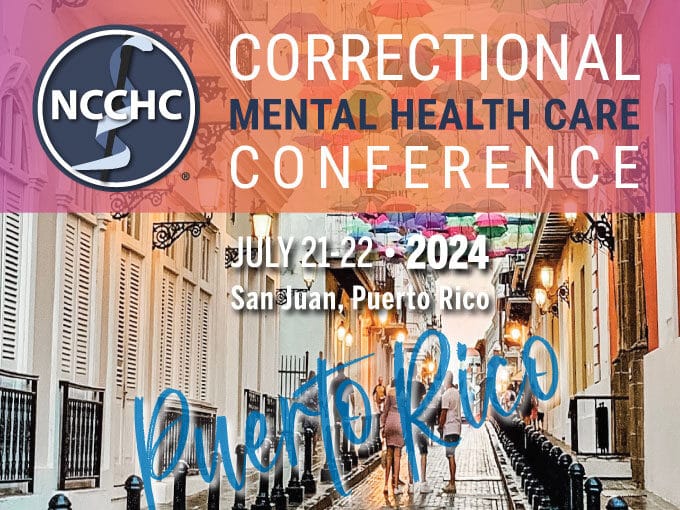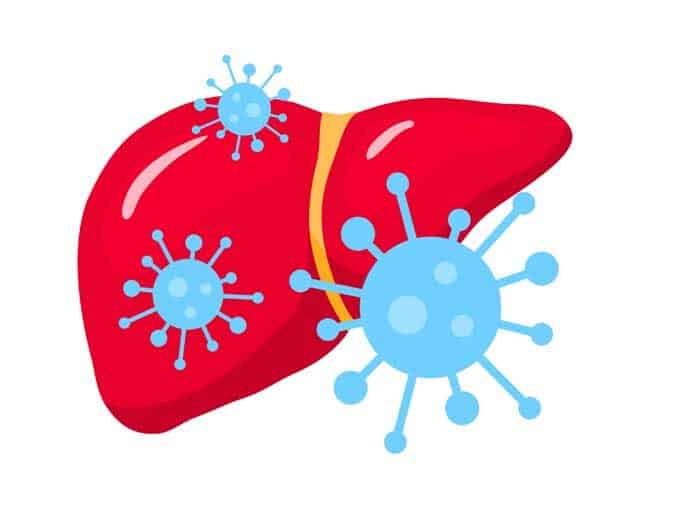
Say hola to Puerto Rico
The 2024 Correctional Mental Health Care Conference will be held in sunny San Juan!
Home Addressing Racism in Correctional Health Care
by Wendi Wills El-Amin, MD, and Carolyn Sufrin, MD, PhD
In eight minutes and 46 seconds, the world witnessed a profound tragedy. That duration, the time a white police officer’s knee was on the neck of George Floyd, an unarmed Black man, has sparked a resurgence of racial reckoning in the United States, one in which we believe correctional health providers must engage.
Our work, after all, is at the intersection of individual patients’ health, public health, law enforcement, and racialized social structures, in ways that are different from the work of community health care practitioners. What happens to our incarcerated patients mirrors what is happening in broader U.S. society. We have a unique opportunity to understand how racial inequity shapes our work, allowing us to better care for our patients and, in turn, help undo some of the unjust realities of our society.
We are correctional health care physicians. One of us is Black, and one of us is white; one of us has experienced racial discrimination in subtle and overt ways throughout her life, and one of us has benefited from the societal structures that make it easier for white people to be safe and successful. We write this together because we believe that it is a collective response, one that acknowledges those different experiences, that will carry us forward.
History matters. When we understand how correctional health fits within our nation’s larger history, we understand how we can best care and advocate for incarcerated patients.
History teaches us that police forces have origins in 17th-19th century slave patrols, when armed white men would capture escaped slaves to return them to their owners. After slavery ended, many states passed laws that criminalized minor behaviors so that former slaves could be arrested and forced to labor on plantations as punishment. As a result, Black Americans are incarcerated at 5 times the rate of white Americans, a disproportion that has not been shown to correspond to actual crime rates.
Racism, Not Race
But it’s not just the undeniable ways that Black communities are disproportionately overpoliced and overincarcerated that we need to be aware of. Black individuals enter custody with a higher burden of chronic diseases than white individuals – a downstream manifestation of adverse social and structural determinants of health. Research has shown that incarceration overall exacerbates racial disparities in health outcomes.
One of the most chilling illustrations of the dynamics of incarceration, health, and racism is the disparities in COVID rates in correctional facilities, which mirror the disparities seen in the community. According to data collected by the NCCHC–Harvard COVID study, rates of infection are over 3 times higher among Black incarcerated individuals than white incarcerated individuals. This matches COVID racial disparities in the general population, as well.
We should examine this troubling trend in COVID rates in the same ways we understand police brutality and mass incarceration. As outlined by physician and epidemiologist Camara Phyllis Jones, MD, PhD, MPH, because of the effects of structural racism, Black individuals are more likely to be exposed to the virus via less protected, essential jobs and incarceration. They are more likely to die from COVID because of preexisting chronic illness (again, related to determinants of health) and poorer access to health care.
NCCHC’s mission is to improve the quality of health care in jails, prisons, and juve¬nile confinement facilities. We believe that mission should include commitments to justice, equity, and undoing racism, as these goals affect our incarcerated patients, our Black and other minority colleagues, and all of society. We join many of our supporting organizations in declaring that racism is a public health threat.
To move toward healing, we must navigate this enduring American tragedy with a posture of courageous humility and accountability to humanity. While statements of solidarity and editorials like this one are important in shared recognition of the problem of racism in correctional health care, we must move beyond words and commit to action. This is hard work and brings up trauma for everyone involved – the health care team, the other staff at institutions of incarceration, and our patients. We know our trauma response is to fight, flee, or freeze. With racialized and stressful moments, we may experience a combination of outrage, paralysis, and fear. We hope NCCHC leadership will elevate its commitment and action toward equity, diversity, inclusion, and antiracist work, both within the organization and in its collaboration with our partners in the field.
Moving Forward
What could this look like for correctional health providers? We must recognize our own unconscious biases to examine how as individuals we may have been conditioned in subtle ways to treat patients of color inequitably – not easy to admit. Evidence-based implicit bias training tools, which are widely available online, can help this process. While bias training will not change the larger structural problems in society, like racial discrimination in arrests and sentencing, it is nonetheless important work to address the unconscious ways we treat certain patients differently.
As part of continuous quality improvement, correctional health services must track more facility-level health outcomes and treatment data according to race and ethnicity to help elucidate whether subtle bias or other race-based factors may play a role. Such race-aware CQI measurements are just as important as hemoglobin A1Cs.
We must individually commit to speak up, not be bystanders but upstanders. We must audit our sphere of influence and develop clear lines of accountability. Silence about this American tragedy does not recognize that this trauma is collective; we must all share in this immense pain. When humanity witnesses the injustice of racism, people respond to this trauma in different ways. This may show up at work in correctional settings in different ways. We must also recognize that many people who work in corrections are people of color and that working in a setting characterized by racial injustice may present a distinctive challenge.
NCCHC has stated its support for “all who seek to make our justice system more just, more fair, and more inclusive” and for working with individuals and organizations to do such work that improves the health of incarcerated patients and their communities.
Racism, in all of its subtle and overt forms, is debilitating and a threat to public health. But it can be undone. Estelle v. Gamble transformed the landscape of correctional health over 40 years ago. We are now at another moment when we can transform correctional health care and make it more just. This critical time in history marks an opportunity for us to enhance the quality of our organizational cultures and interactions with colleagues, staff, patients, and community partners through an awareness of the need to address the structural injustices of racism in the daily work of correctional health care.
As Kareem Abdul-Jabbar wrote in the Los Angeles Times, “Racism in America is like dust in the air. It seems invisible – even if you’re choking on it – until you let the sun in. Then you see it’s everywhere. As long as we keep shining that light, we have a chance of cleaning it wherever it lands. But we have to stay vigilant, because it’s always still in the air.”
Wendi Wills El-Amin, MD, is the NCCHC board liaison for the National Medical Association; Carolyn Sufrin, MD, PhD, is the NCCHC board liaison for the American College of Obstetricians and Gynecologists. This editorial first appeared in the Summer 2020 issue of CorrectCare magazine.


